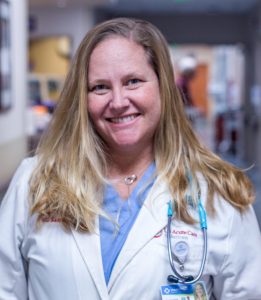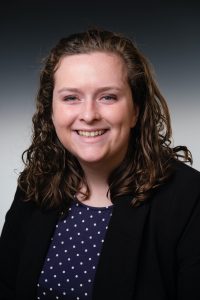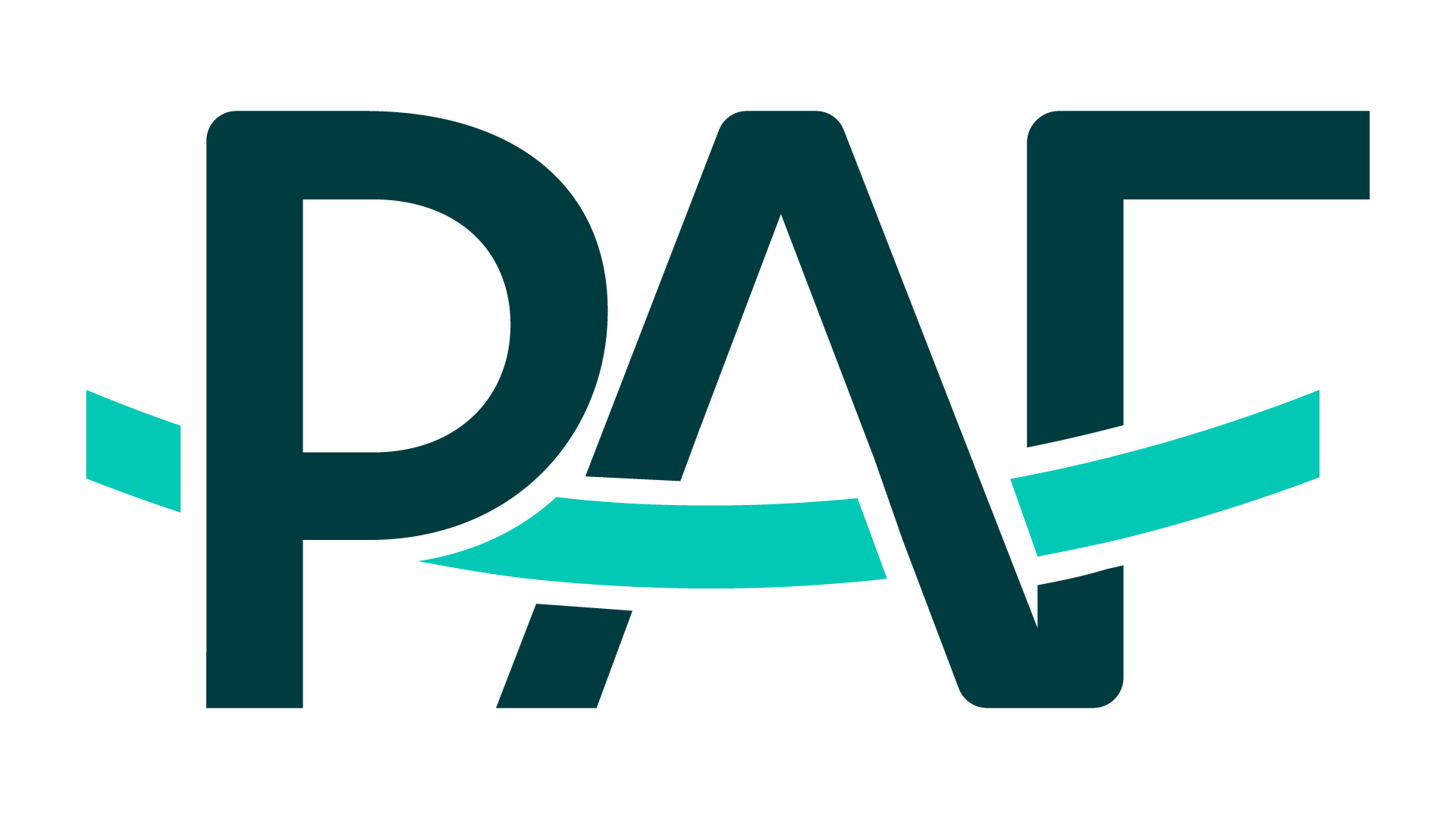2021-22 Awardees
 Arianna Campbell, PA-C
Arianna Campbell, PA-C
Project Name: “Creating Pathways for PAs to Serve as Changemakers in the OUD Treatment Landscape”
Project Description:
While a Board Certification track in addiction medicine exists for non-psychiatrist physicians, no such opportunity for enhanced education and certification exists for PAs currently. This project will serve to develop a pathway for a fellowship track in addiction medicine for practicing PAs. Through collaboration with expert mentors and PA leaders in emergency department, outpatient and hospital-based addiction treatment, a curriculum will be established which will bring together existing educational opportunities into a format which will result in a certification. Establishing a path for PAs to attain credentials in this field could lead to increases in PA leaders driving this work, especially in vulnerable communities. Educational gaps will be identified and addressed, and a proposal will be made in collaboration with the most appropriate organization to maintain certification. The process and results will ultimately be described in a paper which will be prepared for publication. Creating more capacity for opioid use disorder treatment, especially at a time of unprecedented overdose deaths, should be a priority for PAs. Through this project, there will be more opportunities for PAs to join and lead in efforts to save lives from preventable overdose deaths.

Emily Thatcher, MPAS, PA-C
Project Name: “InterED-MOUD (Interprofessional Emergency Department-Initiated Medication for Opioid Use Disorder)”
Project Description:
Emergency medicine clinicians in our hospital and around the country have been fighting two wars in the past year; one with the COVID-19 pandemic and the other with the ever-increasing deaths caused by the opioid epidemic. Buprenorphine is a well-studied, effective medication for treating opioid use disorder (OUD) by reducing opioid withdrawal symptoms and cravings. Initiating buprenorphine in the emergency department (ED) with a referral for outpatient medication for opioid use disorder (MOUD) treatment is nearly twice as effective compared to only referral to treatment when patients were followed one month after ED discharge. Yet, barriers like stigma, or negative attitudes towards patients with substance use disorders, are common and contribute to suboptimal health care for these patients. Notwithstanding, interprofessional collaboration in the ED setting (RN, PA, MD) has shown to improve patient outcomes. This project aims to address the opioid crisis by increasing access to MOUD and reducing opioid overdose-related deaths through an interprofessional education and evidence-based treatment approach. These objectives include facilitating professional growth and development of the trainee, promoting and improving knowledge of evidence-based OUD treatment among ED clinicians across professions, reducing stigma through evidence-based interprofessional education of ED clinicians, adopting electronic medical record (EMR)-based work aids to facilitate evidence-based MOUD in the ED, and disseminating the project’s goals and outcomes.
2020-21 Awardees
 Shannon Morrissey, PA-C
Shannon Morrissey, PA-C
Project Name: “Microdosing as a novel alternative buprenorphine induction strategy for patients with opioid use disorder”
Project Description:
Buprenorphine-naloxone is a well-studied, highly effective medication for the treatment of opioid use disorder (OUD). It can be prescribed in the primary care setting and is comparable in efficacy to methadone for the treatment of OUD. However, treatment retention in the primary care setting at 6 months is only about 60%, with half of people who drop out of care doing so in the first 30 days of treatment. This suggests that a major area of focus for treatment retention should be on the time surrounding the induction process for buprenorphine treatment. One commonly cited reason for induction failure reported by patients is anxiety surrounding the induction process, as buprenorphine initiation requires a patient to be in mild withdrawal. An alternative induction strategy called microdosing is a novel way to transition patients with OUD to buprenorphine with minimal withdrawal and high reported patient satisfaction with the transition process. This project proposes the development of materials and expansion of knowledge in the use of microdosing as an alternative induction strategy for patients who are starting buprenorphine for the management of OUD.
 Brittany Stokes, MS, PA-C
Brittany Stokes, MS, PA-C
Project Name: “Project iM.A.T.T.E.R (Incorporating Medication Assisted Treatment and Telehealth Educational Resources in PA Curriculum)”
Project Description:
In the U.S., opioid related morbidity and mortality have reached unprecedented levels. This led to President Trump declaring an opioid public health emergency in 2017.4 It is a critical to disseminate evidence-based approaches to the management of Substance Use Disorder (SUD) patients in various clinical environments. Medication-Assisted Treatment (MAT) has been shown to be an effective evidence-based therapy for assisting individuals with opioid use related disorders.3 Medication-Assisted Treatment (MAT) involves the use of medications such as methadone, buprenorphine, or naltrexone. However, access to MAT is being limited due to lack of credential providers and facilities. Telehealth has emerged as a valuable tool that can be utilized to expand access to MAT and improve the quality of care relating to SUD. In this project, the mentor and mentee will utilize virtual patients, simulations, and service learning to disseminate evidence-based practices on telehealth enabled MAT practices to students and clinicians within the four Maryland PA programs and associated clinics.
2019-20 Recipients
 Alison Essary, DHSc, MHPE, PA-C
Alison Essary, DHSc, MHPE, PA-C
Project Name: “Dissemination of an Evidence-based Public Health Curriculum in Pain and Addiction for Interprofessional Learners Using the Project ECHO© Model”
Project Description:
Project ECHO© connects a multidisciplinary team of experts with a network of primary care clinicians to enable rapid dissemination of evidence-based guidelines and practices at scale. Project ECHO© uses technology and case-based education to train and mentor primary care clinicians to manage complex medical illness in their communities. The Project ECHO© model has been used successfully to scale education and management of complex illness, including substance use disorder, while increasing the capacity and confidence of primary care providers, improving access to care, and reducing disparities. In this project, the Mentor and Grantee will use the Project ECHO© model to disseminate an evidence-based curriculum in pain and addiction for interprofessional learners in the state of Arizona.
 Hoa “Kevin” Luong, MS, PA-C
Hoa “Kevin” Luong, MS, PA-C
Project Name: “Improving the Treatment of Substance Use Disorders Across a Large Health System”
Project Description:
The University of Pittsburgh Medical Center (UPMC) health system has extended its reach across Pennsylvania and southwestern New York, but its Addiction Medicine Services and Opioid Use Disorder Center of Excellence are geographically limited to their facilities in Pittsburgh. As a result, the large and diverse population of patients who are unable to seek services at these clinics rely on their local providers, often PAs, for evidence-based treatment of their substance use disorder (SUD). This project presents Hoa “Kevin” Luong as an experienced provider of pain management and SUD treatment seeking to further develop his expertise and leverage the support offered through his faculty appointment at the University of Pittsburgh, UPMC resources, and mentorship of his colleague, Dr. Ajay Wasan, to develop the competencies of UPMC PAs and advanced practice nurse providers (APNs) in any practice setting. PA Luong will learn the skill of and complete a systematic literature review of SUD treatment models and their barriers. Incorporating an improvement science approach, he will engage various members of the SUD treatment team and SUD experts; survey PAs and APNs on SUD treatment competencies and perceived barriers; develop, implement, and evaluate educational modules that develop these competencies and overcome the identified barriers; disseminate results; and emerge as a PA leader in the field of SUD treatment.

Annette Bettridge, PA-C, MS, FNP
Project Name: “Stamp Out Stigma – De-stigmatizing Substance Use Disorders and Comorbid Mental Illness Through Innovative Curricular Strategies”
Project Description:
Stigma exists with substance use disorders (SUD). SUD often coexists with mental illness. Both conditions are often stigmatized and poorly understood by the general public and healthcare providers. A bidirectional relationship exists between SUD and comorbid mental illness (CMI) that can negatively impact healthcare outcomes such as morbidity and mortality rates compared to the general population. By addressing both conditions, it is proposed that healthcare outcomes and access to care can be improved. The aim of this project is to design an innovative curriculum to educate PA students on SUD and CMI in an effort to reduce stigma, improve access to mental healthcare, and improve health outcomes. Curricular additions will be added to the PA training program and contact-based educational opportunities will be added to foster interprofessional collaboration and enhance substance use disorder and mental health literacy, reduce stigma, and improve access to care.
2018-19 Recipients
 Crystal Walker, PA-C
Crystal Walker, PA-C
Project Name: “Tarrant County Advanced Practice Provider Research Initiative for Clinical Education”
Project Description:
For PAs and PA students located in Tarrant County, TX, there is an evident gap in promotion, education, training and implementation of evidence-based best practices related to substance use disorders (SUD), particularly medicated-assisted treatment (MAT) options for opioid use disorders (OUD). Tarrant County serves a large and diverse patient population that has a concerning opioid overdose rate. With the increasing need for SUD and OUD treatment options for Tarrant County residents, there is an increased need for dissemination of both available products developed by reputable organizations like NIDA, PCSS, and SAMHSA as well as customized peer-to-peer detailing sessions to increase confidence in adopting aforementioned best practices. There is also a need to increase clinicians’ belief in professional responsibility for assisting their patients with medication-assisted treatments for substance use disorders. This project aims to utilize mentor supervision from two local experts in the SUD field for direction and assistance with reviewing Tarrant County’s curricula and training programs available to local PAs, identifying gaps related to medication-assisted treatment of opioid use disorder and subsequently developing an academic detailing modeled training program based on evidenced-based management of SUD, especially OUD.
 Eleanor Graber, PA-C
Eleanor Graber, PA-C
Project Name: “Every User Has a Story: Integrating Patient Stories and Leading Research to Expand OUD Treatments”
Project Description:
To combat the opioid epidemic we need better access to treatment and more providers working in addiction medicine. Two major ways we can do this are by increasing suboxone prescribers and improving the transition from inpatient hospitalizations related to OUD to treatment on the outside. To accomplish these aims, this project will create a website, shareable video content, and in-person presentations showcasing real-life success stories relating to evidence-based research on OUD treatment. It will focus on humanizing addicts, connecting them to treatment, and creating a call to action for clinicians to get involved. This content will reach clinicians nationwide through social media, advertising, and email. In-person presentations will have a specific focus on NH, a state gravely impacted by the opioid crisis. Additionally, the project will involve working with Dartmouth-Hitchcock Medical Center to better connect hospitalized patients with rehab facilities and suboxone clinics.
2017-18 Recipients
 Richard Bottner, PA-C
Richard Bottner, PA-C
Project Name: “Buprenorphine Induction For Hospitalized Patients”
Project Description:
This award supports the Buprenorphine Team at Dell Seton Medical Center (DSMC) at the University of Texas at Austin, a 211-bed safety net hospital and the main teaching hospital for the Dell Medical School. From October 2016 through September 2017, over 270 admitted patients carried a diagnosis of opioid use dependency. The hospital setting provides a unique opportunity to deliver education and offer patients treatment with buprenorphine. Given that patients may be hospitalized for several days or weeks at a time, and may be at various stages of dependency during this time, the inpatient setting is an important time to offer treatment to this captive audience. Several barriers exist to starting buprenorphine therapy in the hospital setting. Clinicians, especially inpatient providers, often lack experience with substance abuse disorders, and have less comfort when dealing with opioid dependency beyond acute withdrawal symptoms. A stigma exists both around patients with opioid dependency as well as its primary treatments such as methadone and buprenorphine. Buprenorphine induction is offered through the Buprenorphine Team. This interprofessional and multidisciplinary group works to screen appropriate patients for buprenorphine induction, initiate this treatment while patients are hospitalized, facilitate linkage with an outpatient maintenance clinic, and provide institutional education in an effort to reduce stigma and raise awareness.
 Debra Newman, PA-C, MPAS, MPH
Debra Newman, PA-C, MPAS, MPH
Project Name: “Utilizing Psychiatric PAs in Drug/Treatment Courts: A Critical Look At Northern New Mexico”
Project Description:
The Santa Fe County Drug Court is the 3rd longest running drug court in the state of NM, and the Treatment Court is one of only five such courts in the state. The average cost per client/day is roughly $35 as compared to $100-$200/day in jail or prison. The Drug Court model encompasses evidence-based best practices to reduce recidivism and provide clients with psychiatric and addiction medicine treatment. This includes random UDS, group and individual therapy, moral reconation therapy, MAT, contingency management, graduated incentives, and sanctions.
Since 2007, psychiatrists have served as treatment providers for Santa Fe and Rio Arriba County Drug/Treatment Courts. Beginning in November, 2017, a psychiatric PA assumed this role, incorporating NIDA best practices along with publications to share with clients for improved treatment success. This was a result of the DATA waiver that permitted advanced practice clinicians the ability to prescribe MAT to appropriate patients after completion of training.
Clients served by Santa Fe and Rio Arriba Drug/Treatment Court can benefit from the services of a DATA waiver trained/certified and skilled psychiatric PA using evidence-based tools to help them successfully graduate from drug court and assume a drug-free lifestyle.
2016-17 Recipients
 James Anderson, MPAS, PA-C, DFAAPA
James Anderson, MPAS, PA-C, DFAAPA
Project Name: “Meeting the Need: Optimizing the Utilization of Physician Assistants (PAs) in Opioid Treatment Programs”
Project Description:
Current SAMHSA policy specifies that only physicians may admit patients and write medication orders in federally approved opioid treatment programs. In April of 2015, SAMHSA announced a process whereby opioid treatment programs could request an exemption to the guidelines, allowing PAs (and NPs) to be approved by SAMHSA to fully function in federally-approved opioid treatment program settings. This process is widely unknown and underutilized. In order to increase PA utilization in opioid treatment programs and increase the availability of medicated-assisted treatment in such settings, this project will identify and promote resources to assist PAs in navigating the SAMHSA exemption process. The project will illustrate the scope of the opioid epidemic, underscore the need for increased treatment opportunities for patients with opioid use disorders, examine the evidence about the effectiveness of medication-assisted treatment in opioid treatment programs, and increase the opportunities for PAs to participate in the much-needed care modality.
As the nationwide opioid epidemic continues, the enhancement of PA utilization in opioid treatment programs is essential in reducing the extensive morbidity and mortality related to opioid use disorders. This project will do so by increasing PA awareness of the treatment of opioid use disorders; conducting an evidence-based literature about opioid use disorders and in the role of PAs in treating opioid use disorders; mapping the opportunities to participate in opioid treatment programs; enhancing networks of PAs interested in participating in opioid treatment program-based care; and identifying and connecting other stakeholders in such an effort.
 Sandra Alexander, PA-C
Sandra Alexander, PA-C
Project Name: “Carolina Partners in Mental HealthCare Recovery Services Pilot Program”
Project Description:
Due to variable structure of office-based opioid treatment (OBOT) centers, some patients that were in more regimented programs such as a detoxification center or federal opioid treatment programs (OTPs) that step down to office-based opioid treatment or treatment for their substance use disorder have been witnessed to have difficulty with the lack of structure in these environments, either relapsing and returning to the previous more structured environment or back onto the street without care.
The goal of the project is to plan and follow an implementation strategy for an integrated recovery services program that can be easily adapted at other locations to facilitate the expansion of a structured, patient-centered integrated office-based opioid treatment and co-occurring disorders program, providing the community with a program designed as a step-down facility from detoxification center or OTP.

